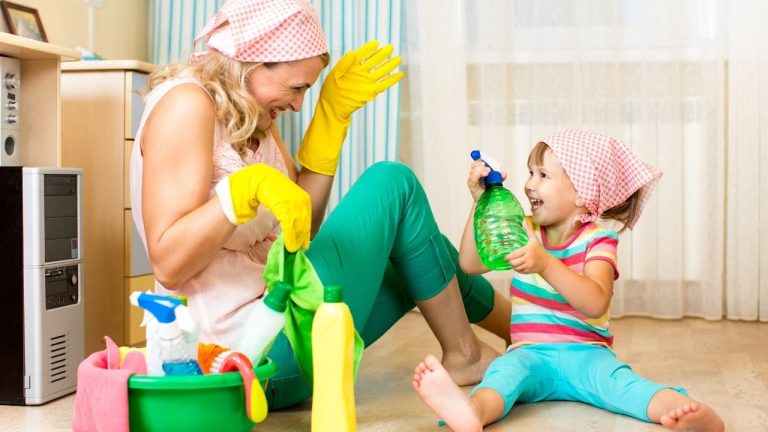9 Child Bedwetting Causes (Psychological & Physical)
This post may contain affiliate links and we may earn commissions when you make a purchase through these links (at no extra cost to you). See our disclosure policy for more details.
Plus, Ways To Help Your Child Stop Wetting The Bed
You’re here because your child is wetting the bed, and you’re at your wits’ end! I hear ya, and I’m here today to talk about possible bedwetting causes (psychological and physical) so you can figure out what’s going on.
Once you know WHY your kiddo’s having so many accidents at nighttime, you can move forward with a solution.
Often, bedwetting can be resolved without medicine, especially in younger kids who are still in the potty training process.
Of course, if you think there’s something more serious going on, especially if you have an older child who is bedwetting, you’ll want to visit with your child’s doctor for a diagnosis and a treatment plan.

I am not a medical professional, and this information is not intended to replace medical advice.
What is the Psychological Term for Bedwetting?
Otherwise known as nocturnal (nighttime) enuresis, bedwetting is the loss of bladder control during the night.
According to NCBI: “Enuresis is defined as involuntary or intentional repeated voiding of urine into clothes or bed at least twice a week for a period of three consecutive months in children older than five years old. It is one of the most frequent chronic childhood disorders.”
It’s considered primary nocturnal enuresis when your child has never been able to stay dry at night. Secondary nocturnal enuresis is when they have been dry overnight for six consecutive months before incontinence reoccurs.
Some Common (and Less Common) Bedwetting Causes
Let’s go over some bedwetting causes, and then we’ll cover a few ways you can help your child stop wetting the bed.
You’ll notice that the majority of this list involves physical causes, which tell me that you should rule them out before moving on to figuring out any psychological causes of bedwetting.
Note: Please understand that this is for informational purposes only, and is not intended to diagnose or treat bedwetting in children.
1. Small Bladder
Let’s face it: Kids have small bladders. This is especially true when they’re first starting the potty training process.
As they grow, their bladders may increase in size and they will have more bladder control.
By age six, kids will typically outgrow bedwetting, mainly because their bladders are more developed and they have stronger bladder control.
2. Unable to Recognize a Full Bladder
Again, younger children who are just starting to potty train at night often aren’t able to recognize a full bladder yet.
Babies’ bladders fill and empty without their control. A reflex in the spinal cord causes the sphincter muscles to relax so they are able to urinate.
But as they get older, they learn how to block this reflex through signals from the brain. Our brains learn to control when the bladder contracts and can stop it from contracting — this is how children become potty trained.
So if your child is still in the potty training process and is wetting the bed, it is likely that they aren’t able to recognize a full bladder yet.
3. Urinary Tract Infection
If your child has stayed dry at night for six consecutive months and starts bedwetting, there could be an underlying condition such as a urinary tract infection (UTI).
Additional symptoms of a UTI:
- Blood in urine
- Cloudy urine
- Urine odor is strong
- Frequent/urgent need to urinate
- Feels ill
- Pain when urinating
- Lower back/pelvic pain or pressure
UTIs result in frequent urination, even if the bladder isn’t full. Luckily, they are easy to treat with antibiotics.
4. Chronic Constipation
Constipation is another underlying cause, or can contribute to, your child’s bedwetting. A distended bowel can put pressure on the bladder, which shrinks its capacity.
This means your child won’t be able to hold as much urine overnight.
Signs they might be constipated:
- Bowel movements less than three times a week
- Stools are hard lumps, like nuts, and hard to pass
- Large stools that block the toilet
- Straining or pain while having a bowel movement
- Soiling in their underwear
- Tummy ache or little appetite
Speak with your child’s doctor if you suspect constipation.
5. Sleep Apnea
Strange as it may sound, bedwetting could be a sign of sleep apnea.
This is because breathing during sleep can be difficult when you have sleep apnea. And when the brain has to work harder at bringing in oxygen, it works less on other bodily functions such as bladder control.
If your kiddo snores, snorts, gasps, or breathes heavily while sleeping, sleepwalks, or doesn’t seem well rested, visit with a doctor to make a diagnosis and discuss treatment.
6. Diabetes
When you have diabetes, your body can’t process glucose (sugar) properly, and you might also produce more urine. Children, and even adults, with diabetes could wet the bed as a result.
Additional symptoms of Type 1 Diabetes include:
- Excessive thirst
- Frequent urination
- Weight loss
- Hunger
- Blurred vision
- Tummy pain
- Vomiting
- Thrush
- Tiredness
If you suspect that your child has diabetes, book an appointment with their doctor right away.
7. Hormone Imbalance
Our bodies make antidiuretic hormone (ADH), which tells our bodies to slow down urine production while we sleep. This helps our bladders hold urine overnight.
But those with lower production of ADH aren’t able to hold higher volumes of urine, resulting in bedwetting.
There are a number of different things that could cause low levels of ADH in the blood.
If your child has a chronic illness, you’ve likely been in touch with their doctor, so it would be a good idea to mention the bedwetting and find out if a hormone imbalance could be at play.
8. Neurological or Urinary Tract Defect
A structural problem is another (uncommon) cause of bedwetting. While it’s very rare, bedwetting is sometimes related to a defect in the neurological or urinary system.
9. Emotional Stress
Finally, emotional stress could be a contributing psychological factor in your child’s bedwetting. Has any stress or trauma occurred recently? Parental conflict, abuse, or hospitalization?
Emotional stress is unfortunately a factor to consider when your child is wetting the bed at night.
Ready to TRANSFORM YOUR MORNINGS?
Do your mornings feel rushed? Are you craving a little more structure in your days, or even a sense of purpose?
Sign up for the FREE 7-Day Morning Makeover Challenge and start making meaningful changes to your morning routine right away.
Over the next seven days, you’ll:
- Define your perfect morning routine
- Find time in your busy morning
- Come up with a solid game plan and more!
Ways to Help Your Child Stop Bedwetting
If your child is unable to stay dry overnight, and they are at an age that nighttime dryness could reasonably be expected, you could try these ideas.
- Visit with your child’s doctor. If you’re not sure what’s causing the bedwetting, you’ll want to get a professional opinion.
- Discuss it with your child. Reassure your child that it’s normal to have accidents at nighttime. Come up with a plan together to help resolve the problem.
- Avoid shaming your child. Making your child feel ashamed could backfire, meaning it will not only hurt their self-esteem, but it could make it even harder to stay dry at night.
- Manage fluid intake. Push fluids during the day to help avoid excessive thirst at nighttime. After dinner, limit fluids to minimize the odds of a bedwetting incident.
- Visit a chiropractor. It sounds a little crazy, but hear me out! Chiropractic care can help the nerves that control the urinary system so that they function better.
- Try a bedwetting alarm. A bedwetting alarm is a sensor that detects urine and wakes the child (and parent) up, so they can finish urinating in the toilet.
Concluding Thoughts
In this article, we learned the difference between primary and secondary nocturnal enuresis. We discovered nine bedwetting causes, plus a few ways to help your child stop bedwetting.
Again, if you aren’t sure what’s causing your child to wet the bed or if there are additional symptoms, it’s important that you schedule a visit with the doctor to find out what’s going on.
Read More:
Where to Stream Free Audio Books for Kids Online
What to Do With Children’s Artwork When It’s Time to De-Clutter
21 Must-Have Arts & Craft Supplies for Toddlers and Preschoolers







